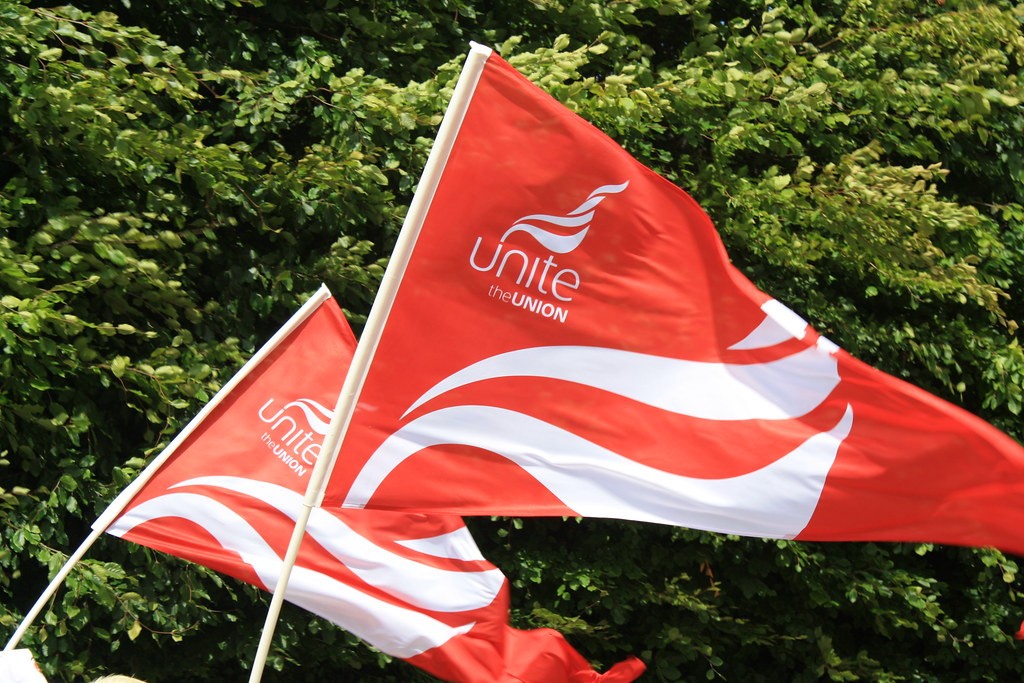1. Steve Turner made a mistake in skipping this broadcast
There cannot be any other reasonable explanation as to why the institutional favourite did not turn up to LBC’s Unite hustings. His excuse that he did not have time does not wash. Now, whether Turner was worried about how he would fare in a debate or genuinely wanted to invest his efforts into visiting workers across the country (in order to get more votes) is a genuine question. As the front runner Turner may see this as high risk, low reward – but he risks letting himself be defined by his opponents in the most high profile broadcast of this election.
2. Beckett’s deal with Turner wasn’t the only one offered
Early on in the hustings, Graham offered an insight into the deal between Howard Beckett and Steve Turner. Graham said that Beckett had offered her a deal first. The terms of the deal were that Graham would sit for only one four year term then Beckett would take over. Iain Dale compared it to Blair and Brown’s Granita pact. In the meantime, Beckett would get autonomy in Scotland, Wales, and Northern Ireland. It calls into question whether Beckett has made a similar deal with Turner.
3. The Birmingham hotel is a huge dividing point for both candidates
Whether it was trying to distance himself from Unite’s executive, or argue Graham is effectively a continuity of the same leadership, Coyne still presents himself as the reform candidate. There was a noticeable divergence between him and Graham around the Birmingham hotel. Graham simply said that the hotel costs what it costs, but called into question Coyne’s own involvement in its development given his status as Regional Secretary in the area. Coyne rubbished these claims, saying he was only in that position at the start of its development, when the estimate was still low. Coyne reiterated that he would launch an independent enquiry, lead by a QC, into how the hotel’s costs have risen so much and how it’s contracts were awarded.
4. Labour’s shadow looms large, but not as large as Len McCluskey’s
There was only one question asked on this, but host Ian Dale said that this had dominated most of the questions that had been submitted. This is hardly surprising given that most of the media attention Unite receives is through the lens of Labour Party politics. Both candidates had different answers (although both agreed that Labour is an important part of the labour movement). Graham dismissed claims that she would stop donating to Labour altogether but did emphasise she’d want to see results for Unite’s money. Coyne meanwhile seemed to have a more relaxed approach to giving labour money, saying he was content to “let the Labour leader get on with their job and let me get on with mine.” Though Coyne’s support from high profile Labour party figures of the party ‘s right is well documented, as was demonstrated during the broadcast by Tom Watson tweeting in a question in support of comments Coyne made questioning Graham’s commitment to the Labour party.
Both candidates were keen to stress they had not spoken to Keir Starmer; in Coyne’s case never, and in Graham’s case not since the BA dispute. The subtext of this point was that; for both candidates, whether it’s leaving the Labour leader to do their job or focusing more on the workplace – the result would be on the surface, the same. Neither candidate would comment on Labour party matters as much as Len McCluskey did.
5. Both candidates agree on reform, but different reform
Essentially, Coyne wants to reform Unite’s staff, remove the previous leadership and get rid of what he sees as a culture of favours and bullying, but leave Unite’s structures in place.
Graham had less to say on the staff in Unite, but stressed the need to remake Unite by getting rid of the regional structure and instead organising along industrial lines. Of the two candidates, Graham appeared to have a more fleshed out plan for what she wanted to do; whereas, at times, Coyne seemed to be advocating change but not saying what he would change.
6. There is genuine animosity between the two candidates
This comes as no surprise, given that the two have been in Unite for years, but it was interesting to hear how quickly both were willing to get into a war of words. Whether it was Graham saying that Coyne had presided over multiple closures and job losses in his region, or Coyne’s parting shot about Unite’s defeat to Ineos, it was evident that both candidates could have happily spent the hour simply criticising the other’s record.


